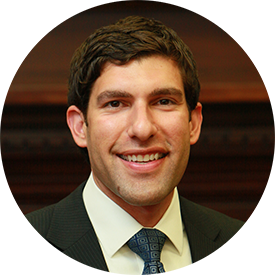Personal Wealth Management / Behavioral Finance
History, Probability, and Thomas Bayes
“Now is an unprecedented time, so market history doesn’t matter. We’re in a whole new world.” I hear or read this daily.
Of course now is unique—every single day is unprecedented. The world evolves. I’ll even do you one better: Change today is not only rapid, it’s accelerating. That is, change (be it technological or just civilizational, generally) is happening at a faster pace than ever before.* Today’s economists and investors are abandoning history by the boatload on this premise. But the opposite is true: History is not only important, it’s more vital than ever to auguring market outcomes.
How is it, despite all the change of the last century, market history still rhymes with today? Simple: The human brain evolves slowly. No matter the technology, the globalization, the newfangled investment products, computers moving at the speed of light, et. al., the human experience of greed/fear, love/hate, panic/euphoria hasn’t changed. These are human universals not just transcending time, but culture and locale, too. Real estate boom/bust? Try Tokyo first! Banking crisis? How about every single decade of the Western world since 1500. And so on. Until Androids Dream of Electric Sheep, it’ll be humans at the helm of markets. That’s why history works; we repeat behavior, only the environment around us changes. Ours are the same brains as Socrates’.
Long-time readers know MarketMinder views history as an important component of forecasting. Ken Fisher and Lara Hoffmans often refer to history as a “lab” to test ideas. Their books are chock full of historical market analyses and reasons why history matters so much. The most recent is the superlative Markets Never Forget(But People Do). (Or see Debunkery and The Only Three Questions That Count.)
I’m a firm believer in the sort of intellectual life where you do the hard work of blazing your own trail of thought—come to your own unique understanding of things. It’s the only way, in my view, to truly own and master concepts. This frequently means coming to the same truths as many before you, but in a way suited best for your particular mind. This is a tough road—it means I can’t just take Ken and Lara’s view of history at face value, right as it is.
My way of viewing history as a market forecasting tool is via Bayesian Probability. This is a method of statistical probability, and it goes like this: To evaluate the probability of a hypothesis, the Bayesian probabilist specifies some prior probability, which is then updated in the light of new, relevant data.
This encapsulates precisely why history is so important in forecasting. First, note that it’s rooted in probability—perhaps the most important feature of market forecasting. Second, it takes historical observations and uses them to test a hypothesis. It’s data-driven and largely testable (though not at all perfectly in the case of the market past). Next, you must update your view with “new, relevant” data—that is, critical thinking. Any great science writing I’ve encountered has this in common: You should be relentlessly focused on the data-driven rigors of the scientific method, but also employ critical thinking to the particular (contemporary) situation. For instance, always understand correlation and causation.
Further, Bayes speaks of probability as "an abstract concept—a quantity we assign theoretically for the purpose of representing a state of knowledge.”** This is such a great view of probability and markets—it’s not the exact percentages that matter, it’s the notion of representing “a state of knowledge” quantitatively. When it comes to the messiness of complex global markets I see analysts slavishly laboring over formulae and decimal point precision in mathematics all the time, completely forgetting what these numbers are signifying and why.
Maybe you don’t buy Ken and Lara’s view or my interpretation of Bayes. You still believe now is too different to compare to then. Okey dokey. But I ask you this: How can we even know today is unprecedented without first studying prior precedents? Or how could you know today’s frequently fretted ills are so peculiar unless you’ve delved deeply into hundreds of years of financial history first?
---------------------------------------------
*Look for an analysis of this notion and its implications in an upcoming column on MarketMinder.
** The basic information for this piece comes from Wikipedia. I’d also recommend Sharon Bertsch McGrayne’s The Theory That Would Not Die: How Bayes' Rule Cracked the Enigma Code, Hunted Down Russian Submarines, and Emerged Triumphant from Two Centuries of Controversy
If you would like to contact the editors responsible for this article, please message MarketMinder directly.
*The content contained in this article represents only the opinions and viewpoints of the Fisher Investments editorial staff.
Get a weekly roundup of our market insights
Sign up for our weekly e-mail newsletter.

You Imagine Your Future. We Help You Get There.
Are you ready to start your journey to a better financial future?

Where Might the Market Go Next?
Confidently tackle the market’s ups and downs with independent research and analysis that tells you where we think stocks are headed—and why.





